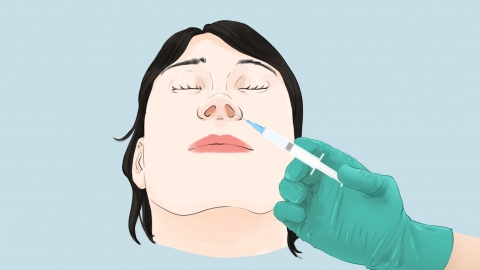What are the symptoms of nasal polyps?
Generally, symptoms of nasal polyps include persistent nasal congestion, runny nose, reduced or lost sense of smell, facial pressure or discomfort, and nosebleeds. A detailed analysis is as follows:

1. Persistent Nasal Congestion
Nasal polyps gradually block the nasal cavity, leading to persistent nasal congestion. As the size of the polyps increases, the nasal obstruction progressively worsens. Initially, it may present as one-sided congestion, but as the condition progresses, it can develop into bilateral congestion, significantly affecting nasal ventilation.
2. Runny Nose
Nasal polyps can interfere with the normal physiological function of the nasal cavity, causing impaired drainage of nasal secretions. Additionally, inflammation within the nasal polyps themselves can stimulate the nasal mucosa to secrete more mucus. This mucus mixes with inflammatory exudates to form nasal discharge.
3. Reduced or Lost Sense of Smell
Nasal polyps can block the olfactory region, preventing odor molecules from reaching the olfactory mucosa, thus affecting the sense of smell. Mild cases may involve reduced olfactory function, while severe cases can lead to complete loss of smell, significantly affecting the patient's daily life, including perceiving external odors and identifying food flavors.
4. Facial Pressure or Discomfort
When nasal polyps grow large or involve the nasal sinuses, they can block sinus openings, leading to increased pressure within the sinuses. Patients may experience discomfort such as facial fullness or dull pain, commonly located in the forehead, cheek area, or root of the nose.
5. Nosebleeds
The mucous membrane covering the surface of nasal polyps is thin and susceptible to external stimuli or inflammation, which may cause mucosal damage and result in nosebleeds. The bleeding is usually minimal, but it still requires attention.
In daily life, it is recommended to maintain nasal hygiene by using saline solution to irrigate the nasal cavity, removing dust, allergens, and bacteria, and keeping the nasal passages clean and moist. Additionally, it is important to actively treat chronic inflammation of the nasal passages and sinuses, such as rhinitis and sinusitis, to avoid prolonged inflammatory stimulation of the nasal mucosa, which may lead to nasal polyps.







